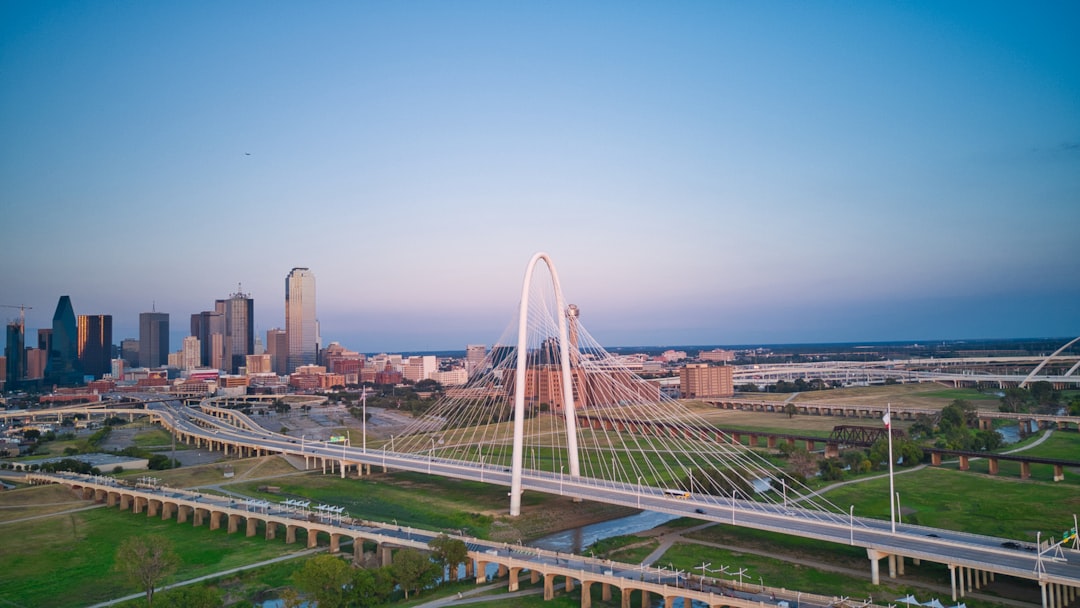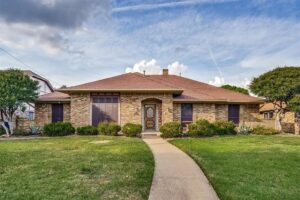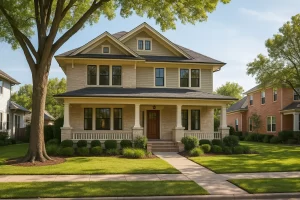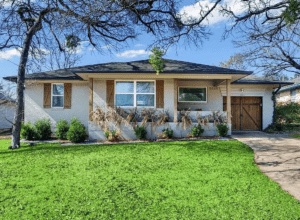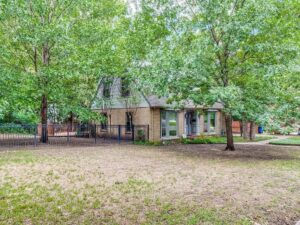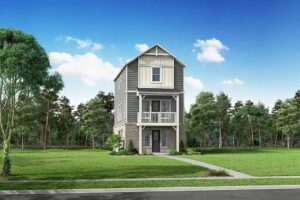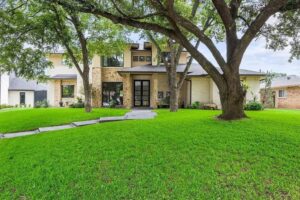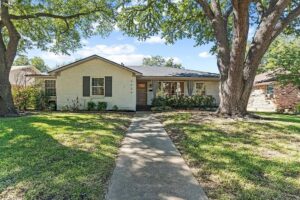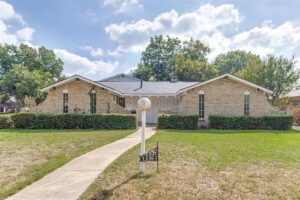Introduction to Living Expenses in Dallas
Living expenses in Dallas refer to the money needed to maintain a certain standard of living in the city. Understanding these expenses is essential for making informed financial decisions when residing in or relocating to Dallas. Various factors influence the cost of living, including housing, utilities, transportation, groceries, healthcare, and other expenses.
Housing costs play a significant role in the overall cost of living. The median home price in Dallas is $405,000, with an average monthly rent of $1,568. For example, a two-bedroom apartment downtown may cost around $2,000 per month, while a similar apartment in the suburbs could rent for $1,500, showcasing the variance in housing expenses based on location.
Utility expenses in Dallas also impact the cost of living. The average electricity cost for residential customers is approximately $0.1563 per kWh, which is crucial when budgeting for monthly expenses. Additionally, insurance costs, including health and home insurance, are essential components of the cost of living. An individual Silver health insurance plan costs around $539 per month, and home insurance averages about $1,000 annually. These details highlight the importance of considering various expenses beyond housing when assessing the cost of living in Dallas.
Average Cost of Housing in Dallas
When considering the average cost of housing in Dallas, it is essential to note that prices are approximately 3% higher than the national average. Individuals looking to reside in Dallas should allocate a careful portion of their budget toward housing expenses to ensure financial security. Experts often suggest not spending more than 30% of monthly income on housing costs to maintain a healthy financial balance.
Moreover, specific figures in Dallas provide a clearer picture of the city’s housing market. For example, the median home price in Dallas is $405,000, showcasing the value of real estate in the area. Additionally, for those considering renting instead of buying, the average monthly rent in Dallas is approximately $1,568. These figures indicate the range of housing expenses individuals might encounter when residing in Dallas, highlighting the importance of wise budgeting in this category. Seeking guidance from professionals like Realtor Dustin Pitts can offer valuable insights and assistance in navigating the Dallas housing market, aiding individuals in making informed decisions about their living arrangements.
Utility Expenses and Cost of Living in Dallas
Utility expenses in Dallas encompass various costs that residents need to consider while managing their budgets. For instance, the average electricity cost in Dallas is around $0.1563 per kWh for residential customers. This rate is a crucial component of monthly expenses for most households. To put this into perspective, a household consuming 1,000 kWh per month would spend approximately $156.30 on electricity alone. Therefore, managing energy consumption effectively is important to control utility bills.
Moreover, insurance is another essential aspect of utility expenses in Dallas. For example, an average individual Silver health insurance plan costs about $539 per month. This cost underscores the importance of factoring healthcare coverage into the overall budget to ensure financial security in case of medical emergencies. Additionally, the annual home insurance fee of around $1,000 in Dallas serves as a protective measure for homeowners. It safeguards their properties against unforeseen events like natural disasters or accidents. Thus, understanding and planning for these utility expenses are vital for Dallas residents to maintain financial stability and security.
Transportation Costs in Dallas
Transportation costs in Dallas are significantly lower than the national average, which makes it an attractive feature for residents. For example, monthly passes for the Dallas Area Rapid Transit (DART) system are priced at $96. This provides an affordable option for commuting within the city. Additionally, with gas prices in Dallas being about 13% cheaper than the national average, residents can save considerably on fuel expenses throughout the year.
Moreover, public transportation options in Dallas, such as the DART services, offer residents a convenient and cost-effective way to travel. By utilizing these services, individuals can reduce their reliance on personal vehicles. This further saves on maintenance, insurance, and parking costs. This accessibility to efficient and budget-conscious public transportation not only reduces the overall cost of living in Dallas but also helps in decreasing traffic congestion and the city’s carbon footprint.
Healthcare Costs in Dallas
Healthcare costs in Dallas are estimated to be 13% higher than the national average. Therefore, it is crucial for residents to budget for medical expenses carefully. For example, a 40-year-old individual looking to secure a Silver health insurance plan in Dallas can expect to pay around $589 per month. This is above the national average. These costs highlight the importance of having adequate health coverage to manage unexpected medical bills.
Moreover, Dallas boasts a robust healthcare system with numerous hospitals, clinics, and specialized medical facilities. Residents have access to cutting-edge treatments, skilled healthcare professionals, and a wide array of medical services. This diverse healthcare landscape not only contributes to the higher cost of living in Dallas but also provides peace of mind. Residents can receive top-notch medical care when needed.
Additionally, the city’s focus on healthcare innovation and quality underscores its commitment to promoting the well-being of its population. This further justifies the slightly elevated healthcare expenses compared to the national average. Thus, understanding and planning for these healthcare costs is essential for residents to maintain financial stability.
Comparing Living Expenses in Dallas to Other Cities
When comparing the cost of living in Dallas to other U.S. cities, several factors stand out. First, Dallas’s overall cost of living is slightly higher than the national average by about 3%. However, the absence of state or local income taxes makes Dallas a favorable location for residents. For instance, cities like New York or San Francisco have substantially higher income tax rates, making Dallas a more tax-efficient option.
Moreover, the housing market in Dallas offers affordable options compared to other major cities. For example, the median home price in Dallas is $405,000, significantly lower than prices in San Francisco or Los Angeles. This affordability allows residents to secure housing that aligns with the general rule of not spending more than 30% of their income on housing costs, promoting financial stability.
Additionally, the cost of living in Dallas may be slightly above the national average. However, the overall financial landscape, including tax benefits and affordable housing, positions the city as a compelling choice. This is ideal for individuals looking to maintain a comfortable standard of living without compromising on financial security. Thus, while Dallas’s living costs are higher than the national average, the benefits outweigh the drawbacks.
Key Considerations for Living Expenses in Dallas
When analyzing the cost of living in Dallas, it is crucial to consider the impact of choosing the right neighborhood on overall expenses. For example, residing in areas like Uptown or Oak Lawn may come with higher housing costs. However, these areas offer proximity to employment centers and amenities, potentially reducing transportation expenses and enhancing the quality of life. Conversely, neighborhoods like Pleasant Grove or South Dallas might provide more affordable housing options. Yet, they could lead to higher commuting costs or limited access to certain services, affecting the overall budget.
Moreover, to thrive financially in Dallas, individuals can leverage the city’s numerous free or low-cost activities. For instance, exploring the Katy Trail for a scenic walk or visiting the Dallas Museum of Art during its free admission days can provide entertainment without straining the budget. Additionally, cultivating a habit of regular saving, even in small amounts, can contribute to financial stability. This ensures preparedness for unexpected expenses and a more secure financial future while enjoying all that Dallas has to offer.
Dallas stands out not only for its economic opportunities but also for its moderate cost of living. This makes it an appealing choice for individuals and households seeking a balance between financial comfort and a vibrant urban lifestyle. With a diverse job market spanning industries like technology, healthcare, and finance, Dallas offers a range of employment options to suit various career paths. This economic diversity, coupled with the city’s relatively manageable living costs compared to other major metropolitan areas, positions Dallas as a desirable location. Therefore, it is ideal for those considering a move to a city with a blend of affordability and opportunity.
Recommendations for Navigating Living Expenses in Dallas
-
Housing Costs:
- Plan for Higher Expenses: With the expected rise in housing costs, it’s crucial to allocate a larger portion of your budget towards housing expenses. Consider options like downsizing or moving to more affordable neighborhoods within Dallas to manage costs effectively.
- Explore Financial Assistance Programs: Look into financial assistance programs available for first-time homebuyers or renters. Programs offering down payment assistance can make homeownership more accessible.
-
Transportation Costs:
- Optimize Commuting Options: With potential increases in fuel prices and infrastructure developments, consider using public transportation or carpooling to reduce commuting expenses. Dallas’s public transit options can provide a cost-effective alternative to driving.
- Budget for Infrastructure Changes: Be aware of any upcoming infrastructure projects that might impact transportation costs. Planning ahead for toll roads or other expenses can help mitigate unexpected financial burdens.
-
Food and Groceries:
- Adapt Spending Habits: Given the anticipated fluctuations in food prices due to agricultural trends and inflation, adopt cost-saving strategies like bulk buying, using coupons, and shopping at farmers’ markets.
- Plan for Seasonal Changes: Understand that food prices may vary seasonally based on crop yields and weather conditions. Budgeting for these variations can help smooth out monthly expenses.
-
Healthcare Costs:
- Review Insurance Plans: With healthcare expenses predicted to impact the cost of living, review your health insurance plans to ensure they provide adequate coverage. Consider options that offer the best value for your needs.
- Utilize Preventive Care: Taking advantage of preventive healthcare services can reduce long-term medical expenses by addressing health issues early.
-
Educational Expenses:
- Budget for Rising Costs: Households should plan for the rising costs of education, including tuition fees and related expenses. Setting aside funds specifically for educational needs can help manage these expenses.
- Seek Scholarships and Grants: Explore scholarships, grants, and financial aid options that can offset### Recommendations for Navigating Cost-of-Living Challenges in Dallas
-
Housing Costs:
- Plan for Higher Expenses: Allocate a larger portion of your budget toward housing expenses due to rising costs. Consider options like downsizing or moving to more affordable neighborhoods to manage costs effectively.
- Explore Financial Assistance Programs: Look into financial assistance programs for first-time homebuyers or renters. Programs offering down payment assistance can make homeownership more accessible.
-
Transportation Costs:
- Optimize Commuting Options: With potential increases in fuel prices and infrastructure developments, consider using public transportation or carpooling to reduce commuting expenses. Dallas’s public transit options can provide a cost-effective alternative to driving.
- Budget for Infrastructure Changes: Be aware of any upcoming infrastructure projects that might impact transportation costs. Planning ahead for toll roads or other expenses can help mitigate unexpected financial burdens.
-
Food and Groceries:
- Adapt Spending Habits: Given the anticipated fluctuations in food prices due to agricultural trends and inflation, adopt cost-saving strategies like bulk buying, using coupons, and shopping at farmers’ markets.
- Plan for Seasonal Changes: Understand that food prices may vary seasonally based on crop yields and weather conditions. Budgeting for these variations can help smooth out monthly expenses.
-
Healthcare Costs:
- Review Insurance Plans: With healthcare expenses predicted to impact the cost of living, review your health insurance plans to ensure they provide adequate coverage. Consider options that offer the best value for your needs.
- Utilize Preventive Care: Taking advantage of preventive healthcare services can reduce long-term medical expenses by addressing health issues early.
-
Educational Expenses:
- Budget for Rising Costs: Plan for the rising costs of education, including tuition fees and related expenses. Setting aside funds specifically for educational needs can help manage these expenses.
- Seek Scholarships and Grants: Explore scholarships, grants, and financial aid options that can offset the cost of education. Many programs are available to support students at different levels.
Final Thoughts on Living Expenses in Dallas 2024
As Dallas residents navigate the predicted cost of living trends for 2024, staying informed and adaptable is crucial for financial stability. Understanding the factors influencing housing, transportation, food, healthcare, and education expenses helps individuals make strategic financial decisions. Therefore, proactive planning and budgeting will help residents manage the expected economic challenges while enjoying a high quality of life in Dallas.
With the right approach and resources, navigating the evolving cost of living landscape in Dallas is achievable. Residents can turn challenges into opportunities by leveraging financial assistance programs, optimizing spending habits, and staying informed about market trends. The year 2024 promises to be dynamic. However, with careful planning, Dallas residents can thrive amidst the changes.
Conclusion on Dallas Living Expenses Trends
In conclusion, the cost of living trends in Dallas for 2024 will be influenced by various factors. These include housing, transportation, food, healthcare, and education expenses. Understanding these trends is crucial. By implementing effective financial strategies, residents can navigate the challenges and maintain a stable economic outlook. Staying informed and proactive is essential in adapting to the evolving financial landscape in Dallas.
